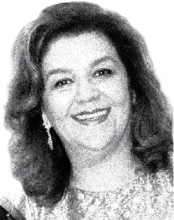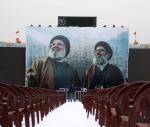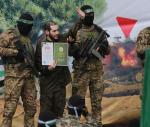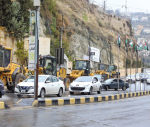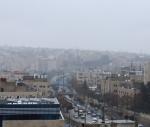You are here
King’s messages on reform should be acted on
Dec 29,2018 - Last updated at Dec 30,2018
In his last message of 2018, His Majesty King Abdullah asked the “political power centres” to deliver his vision for economic and political reform.
His Majesty made very important remarks in his meeting with journalists on December 23, in which he laid out his assessment of where Jordan is at the end of 2018, in light of recent regional developments, but also with regards to his vision for economic and political reform in Jordan. He had several key messages that I think really should be reflected — and acted — on more clearly by those who belong to what His Majesty referred to as the political power centres or “Al Qiwa Al Siyassiya” in Jordan.
First, the King summed up, the regional situation around Jordan as clearing up, with Gulf countries standing behind Jordan and helping it, Syria’s situation finding its way to resolution, most probably, allowing for exploration of opportunities, the overall situation in and with Iraq tangibly improving with prospects for Jordan-Iraq collaboration becoming more tenable and the supply of gas from Egypt returning to normal. Added to this improved situation, His Majesty pointed to the active tourism sector and said that he can see that the sector has become a dynamic one. While the King was guarded in his words, it was clear that he viewed the regional formula to have undergone a marked and positive shift in favour of Jordan.
Secondly, the King reemphasised the urgency of focusing on economic revitalisation. Now that Jordan has moved past the “difficult decisions” — in what appears to be a reference to the passing of the tax law — the King emphasised the need to move forward “without hesitation” on what he articulated as the pillars of economic revitalisation: economic growth, increased investment, improved services and creating job opportunities for youth.
The King specifically addressed the prime minister, senior officials, parliamentarians and senators and all those that fall under what he strategically named as the actors of “qiwa siyassiya” or political power centres in Jordan. He asked them to take note that the “solution” to the country’s ills is primarily in this sector.
Thirdly, the King spoke openly about the calls for political reform. I believe that this point, particularly, needs careful reading and analysis. His Majesty first voiced his frustration with the claims that he has put economic reform above political reform, pointing to the national review of the Elections Law ahead of the 2016 elections which culminated in a re-evaluation of the one-man one-vote system which had been rejected by many as a hindrance to the emergence of political parties and parliamentary blocs.
The 2016 law, the King reminded people, was reached through discussion and consensus building, responded to the demands that rejected the earlier law, was approved by key political parties (i.e. the Muslim Brotherhood, which had boycotted the elections under the old law) and, finally, the elections in 2016 that were held under the articles of that law were lauded as transparent and free. “We had gone through a long period of review, during which we worked on deep political reform, and we delivered the elections in 2016 as a result of that review... I believe we already have a strong core [in the Elections Law].”
Some politicians are taking this statement to mean that His Majesty is sending a clear message that he does not sanction any further discussion of the elections law or any other government-led action to push political reform. I have listened many times to the recorded video of this section and I beg to disagree. In fact, I believe the message from King Abdullah, in these last weeks of 2018, have strong guidance to the government and Parliament alike on the need to push forward with political reform and implementation, with good will, existing agreements as embodied in the letter and spirit of the laws governing political life.
King Abdullah very clearly sent three messages: That while he does not believe that we need to reopen a full review of the Elections Law, he would still accept and support some tweaking of the law to further its core principles; that we have a strong foundation for political reform laid out in the laws and the Discussion Papers that need to be acted upon and pushed forward by the political power centres; and that the Jordanian people are ready for democracy but want to see an active and credible effort by “political forces” to organise themselves and seek the support of the electorate based on political programmes.
Those three messages, in my opinion, imply that the political reform required at this time is not one that requires the sanction of the King, as this has already been reiterated by His Majesty on so many levels, nor does it need new laws, but it does require serious buy in, investment and action from the “political power centres” as represented by the prime minister, senior officials, parliamentarians and senators as well as others who influence the political mood in the country.
Why do I conclude that? Let me review what His Majesty said in the meeting.
First, the King said that while the essence of the Elections Law is strong, he would accept small amendments to improve the law. The King said: ”It perhaps needs a couple of amendments here and there and I support those amendments — if they are not major — as I already believe it [the law] has a strong core.”
Second, the King’s choice of the term “qiwa siyassiya” or “political power centres” several times during his analysis of the current situation was not arbitrary and I believe sends a strong message to the prime minister, senior government officials, parliamentarians, senators and “other” power brokers that the political reform needed does not require a re-opening of a national dialogue on political reform and a new Royal endorsement but requires them to take the necessary steps to execute the reform that has already been agreed as the principle guiding the Elections Law of 2016 and articulated by the King himself in several Discussion Papers since 2011.
His Majesty said: “It is now in the political power centres’ court to institutionalise political parties and convince people to elect them.” In fact, although I wanted to leave the Status of the Country Report by the Economic and Social Council published last week to a more thorough discussion in the new year, it is prudent to draw attention to a table included in the political development chapter of the report (Table #2 on pp.15,16,17) and which reviewed the instructions as articulated in His Majesty’s Discussion Papers on political reform and which have not been “institutionalised” or “acted upon” by the executive or legislative bodies and other power agents in the country. That table serves as a stark reminder that while the “political will” has been decreed in the Discussion Papers, it has not been seriously adopted by the implementing power brokers.
I believe what the King was explicitly saying is that it is not a review of the laws that is needed — we have already gone through that extensively in preparation for the 2016 elections — it is the implementation of those laws and the determination to move forward with seriousness on the key instructions within the discussion papers that is missing. As King Abdullah clearly reminded everyone: “We have laid the foundations and the rest is up to them.”
Thirdly, the King did not use the excuse that the Jordanian people are not politically ready to take up their responsibility as voters (as some politicians are privately alluding). In fact, His Majesty voiced his confidence in the Jordanian people when he said: “The people are ready for democracy but the political power centres have a responsibility to organise themselves.”
So much more can be discussed and debated around this thorny subject. And as the King also quite openly said this whole discussion is being used by detractors to “create noise” around the integrity of the country and the leadership which really cannot be allowed to mushroom and detract from what is positive.
But as we bid farewell to 2018, I believe the King’s message was very important and needed to be heard clearly as we begin planning for a new year of challenges and opportunities.
Jordanians will be heartened by the positive message from the King on the regional developments allowing us to turn a page on some serious challenges that truly nosedived us to serious economic and financial difficulties. Jordanians will also be encouraged by His Majesty’s emphasis on economic recovery and political reform and his continued faith in the maturity and commitment of the Jordanian people to the country’s best interest which he continues to believe in despite the “noise”.
Our hope for 2019 is that Prime Minister Omar Razzaz, his team and the legislative body as represented by elected parliamentarians and the wise council of senators, will truly live up to the roles that His Majesty assigned them in this last message of 2018: To actively become engaged as true mobilisers of economic and political reform without fear and hesitation, without delay and without excuses.
Happy New Year!

